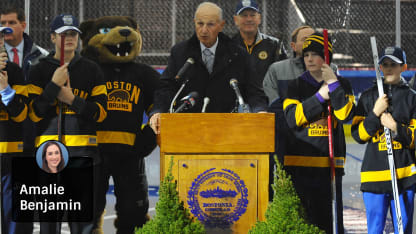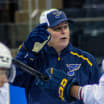"You could always look at things like that, whether it's that particular move or trades or signings or players you may have passed up on in the [NHL] Draft because you liked somebody else differently," Bruins president Cam Neely said.
"I felt it was going to be better [after the coaching change]. Did I expect the run we went on? No. I don't think anybody really did. But the environment, the way we were practicing, changed dramatically right from the next day."
Perhaps it was the message getting stale, the lack of new blood or new ideas or new methods.
"Claude, he's a fantastic coach, had a lot of success, but I think you're talking 10 years, and a lot of players, similar players, you're talking 82-plus games a year with the same voice," Neely said. "I think regardless of how good a coach someone is, at some point it's not like 16 games a year. … It's not so much about his ability to coach. I think it was just from what the pulse was, what Don was telling me was maybe it was just time.
"Fortunately things worked out, and Bruce was a good call."
Still, the end of the season wasn't what the Bruins wanted, nor was it what they have come to expect. There are eight teams left playing in the postseason and the Bruins are not one of them.


















